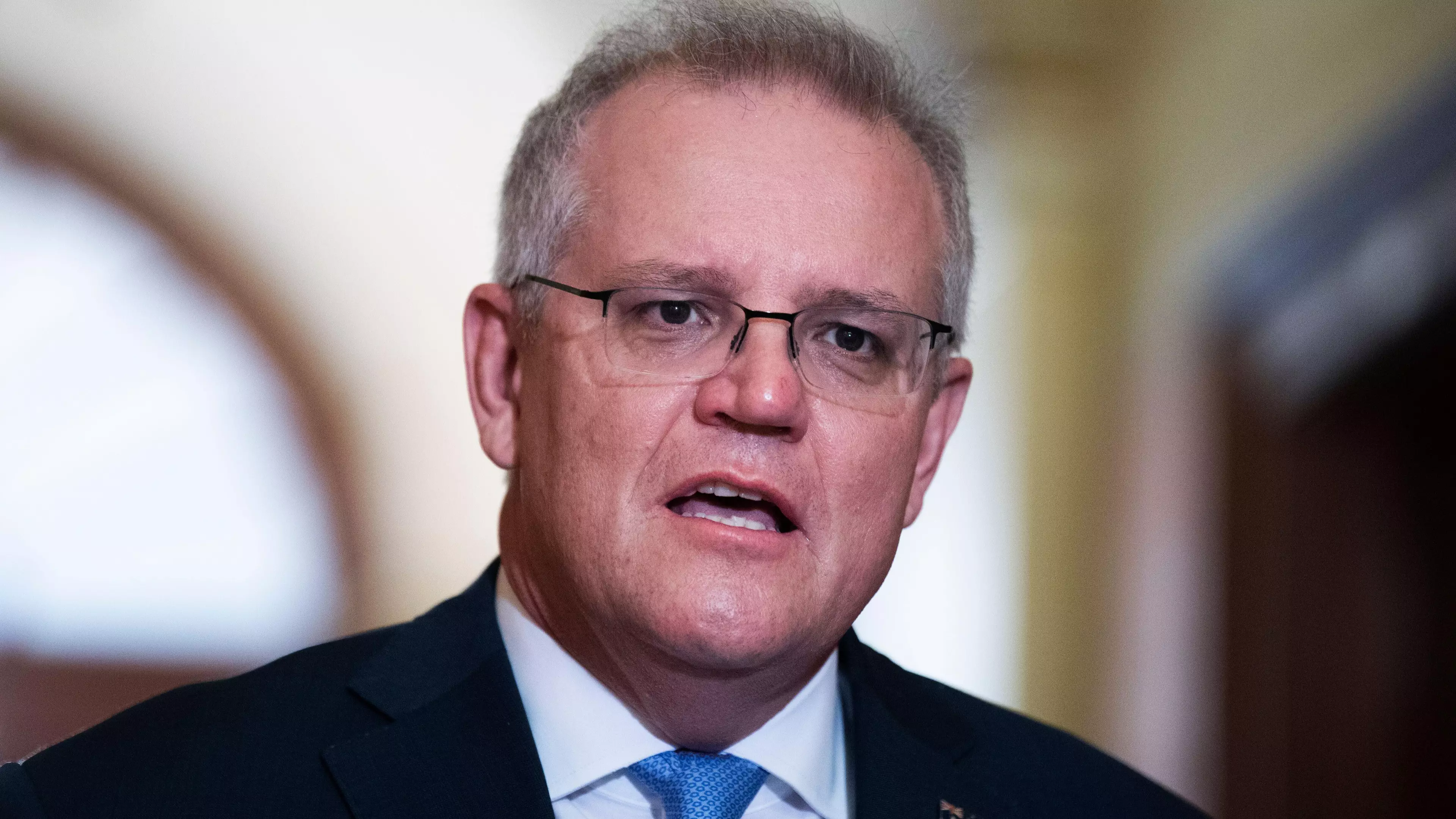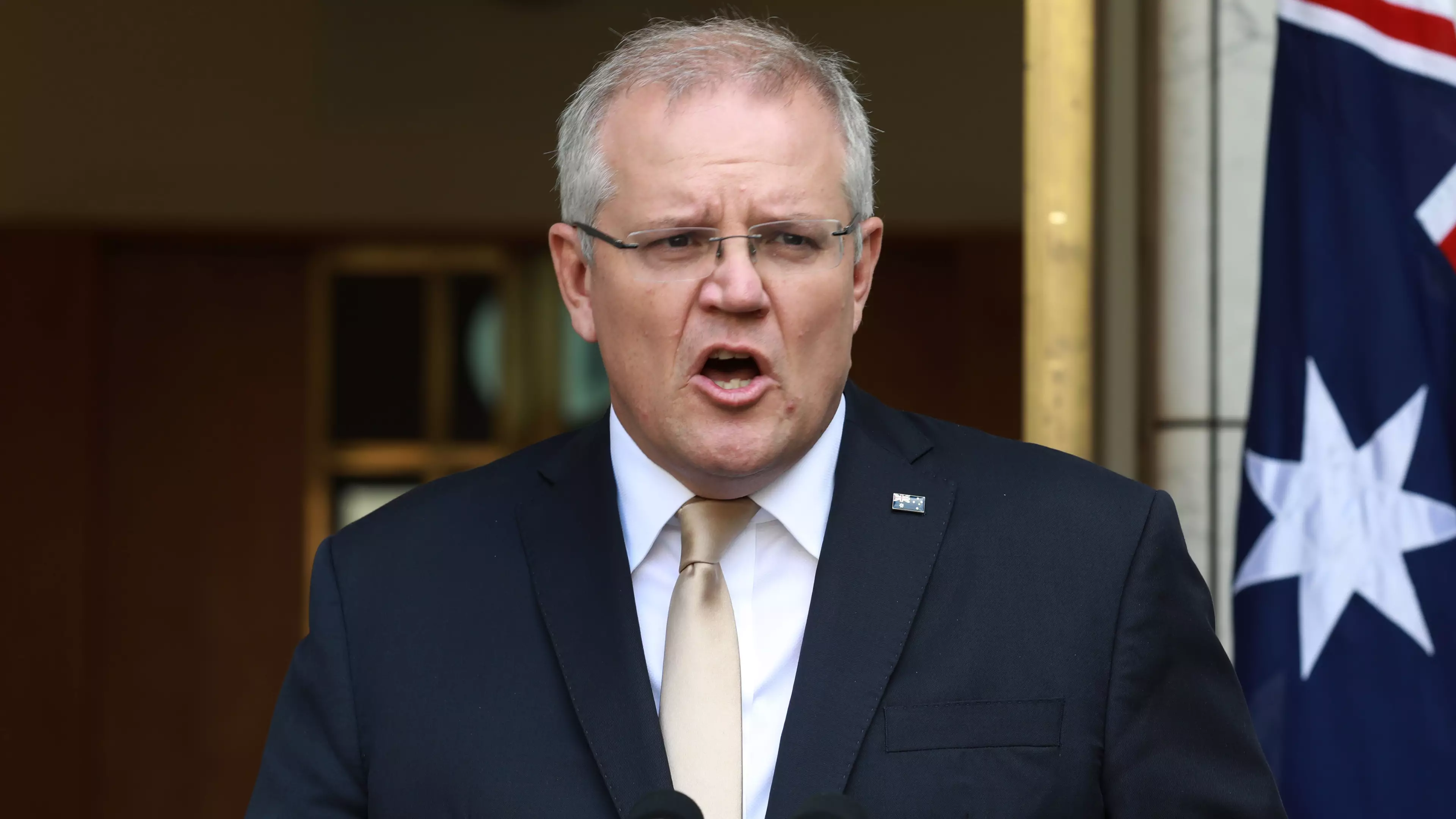
Prime Minister Scott Morrison has warned the easing of international border restrictions may change in response to the Omicron coronavirus variant.
Both New South Wales and Victoria have already announced a mandatory 72-hour isolation for anyone entering Australia, no matter what country they're coming from.
The ACT has also introduced isolation guidelines for incoming travellers.
Advert
This came came after two people arrived in Sydney on a flight Africa and they tested positive for the new strain of the virus.
NSW Premier Dominic Perrottet said this morning (November 29) a third international arrival has 'possibly' tested positive to the new variant in Sydney.
While he said the Omicron variant won't change their reopening plan, the Prime Minister flagged there could be changes made at a higher level.
Advert
Mr Morrison told Sunrise that he's commissioned an emergency National Cabinet meeting to discuss delaying a change that would allow international students and migrants to come to Australia without travel exemption.
The change was scheduled for December 1, but it could be scrapped so that Australian authorities can contain the number of people coming into the country.
"Of course it is concerning, and that is why we're getting all the information we possibly can," Morrison told the Channel 7 programme.
"This morning I have advised the premiers and chief ministers that we will convene a meeting of the National Cabinet either today or tomorrow."
Advert
The Omicron variant has only been confirmed in around 100 individuals globally since it was first reported last week, but it has been labelled 'concerning' as it seems to spread quickly and could be resistant to existing vaccines.
According to the World Health Organization (WHO), it isn't clear whether the variant is more severe than others, with increasing rates of hospitalisation being identified in South Africa, where it was first reported.
However, there is no clear guidance on whether this is specifically as a result of Omicron.
In response to the rapidly changing situation, the federal government has also imposed a two-week ban on non-citizens arriving from South Africa, Namibia, Zimbabwe, Botswana, Lesotho, Eswatini, Seychelles, Malawi and Mozambique.

"We're looking at the cases very carefully and we're getting as much information as we can about the nature of this new variant," Morrison said.
Advert
"At this stage I think it's important that we need to proceed very cautiously, as we are, we've moved very quickly to put in place controls."
"This isn't the first of the new strains we have seen, and the evidence to date does not suggest it is a more severe form of the virus and issues of transmissibility and impact on the vaccine, there is no evidence yet to suggest there are issues there.
"But should that information come forward, then obviously we will be considering that and moving very quickly, as we already have on the information that has been available to us today."
According to WHO, research is currently being done into the effectiveness of current vaccines against Omicron, but the organisation reiterated that vaccination is still the best defence against the virus.
Advert
South Australia now requires people from any country to quarantine for 14 days instead of seven, and Western Australia tightened its border with SA due to the Omicron strain.
Queensland said that, at this stage, it will not be doing anything differently and is still on track to reopen once 80 per cent of residents over 16 are fully vaccinated.
Featured Image Credit: Sipa US / Alamy Stock PhotoTopics: Omicron, covid, News, Scott Morrison, Australia